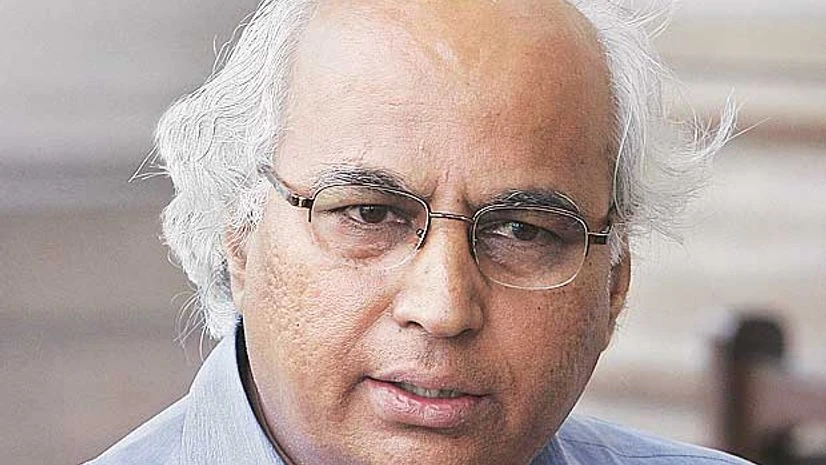In more than three decades in public life, Sudheendra Kulkarni has seamlessly flitted from one ideological hue to another. A Marxist in his youth, Kulkarni found himself in the Hindutva camp a decade later. He has also worked for such corporate groups as the Hindujas and in recent years has written extensively about the Mahatma.
It is, therefore, easy to dismiss the man as something of an opportunist. But surprisingly, hardly any of his former colleagues, particularly his erstwhile comrades among the Leftists, have a bad word to say about Kulkarni.
His shifting ideological allegiances aside, Kulkarni, currently the chairman of the Observer Research Foundation, has always kept communication lines open with all his former friends and made common cause with their struggles.
More From This Section
His bold act -underlined by refusing to remove the black paint-also seems to have further endeared him to his associates. "His act has been a significant contribution to the dissenting camp at a time when the political class is at a loss in devising a strategy to counter the shrinking space for other points of views," a former associate, who knew Kulkarni before he joined the Bharatiya Janata Party in 1996, says.
When studying at the Indian Institute of Technology, Mumbai, Kulkarni was a Students' Federation of India activist and later became a trade unionist. In the late 1980s, he succeeded Khwaja Ahmed Abbas at The Blitz as the lead writer for the paper's popular column The Last Page, when the Mumbai-based publication brought out by RK Karanjia was still a Left-leaning tabloid.
His friends from that era remember him putting up posters against communal forces on Mumbai's walls along with Javed Anand and Teesta Setalvad. But Kulkarni was disillusioned by Marxism as an ideology that couldn't offer any solutions to the myriad problems of India. The Ram Janmabhoomi movement was picking up then. The Blitz was to discover the merits in the political discourse that Advani and his ilk espoused.
The BJP leader, at one of his press conferences, praised Kulkarni for his writings. He was soon working full time for Advani, even at times sleeping in the vehicle that Advani used as his chariot during his campaigning across India. Kulkarni later joined the party, and also spent years in the Vajpayee PMO. In between, Kulkarni also worked as an executive at a newspaper launched by the Reliance group and then with the Hinduja group.
After BJP's defeat in 2004, Kulkarni stood by Advani's side. It was at his suggestion that Advani made the fateful 2005 visit to Pakistan and praised its founder, Muhammad Ali Jinnah. The two hoped this would help BJP distance itself from the Rashtriya Swayamsevak Sangh, but few in the party understood the significance of the move and Advani had to quit under RSS pressure.
In June 2013, when BJP prepared to accept Narendra Modi as its prime ministerial candidate, Kulkarni wrote an open letter that described Modi as an autocrat and bemoaned how Advani, a perfect democrat, was being marginalised. Kulkarni quit BJP to protest the RSS ' dominance of the party. Last year, he authored a book, Music of the Spinning Wheel: Mahatma Gandhi's Manifesto, which argued that the Mahatma's philosophy has the answers for a world trying to come to terms with the technological revolution.

)
